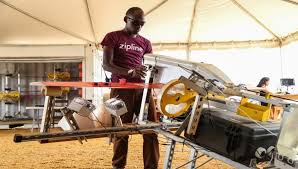Across Africa, a quiet revolution is taking place. On bustling city streets and in humble rural workshops, local innovators are stepping up with fresh ideas and bold solutions—replacing imported goods with proudly homegrown alternatives.
In the past, everything from soap to smartphones came from abroad. But now, African entrepreneurs are proving that the continent can make its own products—and often, do it better.
Rewriting the Narrative
For decades, Africa has been known more as a market than a manufacturer. Many everyday items—food, electronics, even building materials—have long been imported from Europe, Asia or the United States.
But for innovators like Fatima Moyo, a chemical engineer from Tanzania, that’s changing.
“I was tired of seeing shelves full of foreign cosmetics, most of them not even suited for our skin,” she says. “So I started making my own.”
Her company, Afya Naturals, creates affordable skin and hair care products using local ingredients like baobab oil and shea butter. She employs 12 women in her hometown of Arusha and ships her products across East Africa.
“I’m not just building a business,” Fatima says. “I’m building confidence in what we can create right here.”
Bricks, Not Barriers
In Nigeria, Samuel Obi is rethinking how cities are built—literally.
He founded GreenBuild Africa, a company that makes eco-friendly bricks using waste materials like rice husks and coconut shells. His bricks are cheaper, stronger, and more sustainable than traditional imports.
“We’ve been importing cement for years, but we have the resources to build better here,” says Samuel. “Why import what we can innovate?”
His bricks are already being used in housing projects across Lagos and are attracting interest from construction firms in Ghana and Kenya.
More Than Just Goods
These innovators aren’t just replacing products—they’re rewriting perceptions. They’re challenging the idea that “foreign” means “better.”
In South Africa, Lebo Dlamini designs stylish, locally made sneakers under her brand SoleRoots. Made from upcycled denim and hand-stitched by local artisans, her shoes are fast becoming a symbol of African pride.
“I want our youth to wear something that tells a story,” says Lebo. “A story of creativity, resilience, and roots.”
The Bigger Picture
There are economic benefits too. Making products locally creates jobs, boosts skills, and keeps money circulating within communities. It also reduces dependency on foreign currencies and international supply chains—which became painfully clear during the COVID-19 pandemic.
Governments are taking notice. Countries like Rwanda and Ethiopia are investing in manufacturing hubs, offering incentives for startups, and promoting “Made in Africa” campaigns.
But challenges remain: access to finance, inconsistent infrastructure, and competition from cheap imports can still make it hard for local businesses to scale up.
A Movement in Motion
Despite the hurdles, the movement is growing. From tech gadgets in Nairobi to handmade bags in Accra, African-made products are gaining recognition—and respect.
“It’s not just about replacing imports,” says Fatima. “It’s about believing in ourselves and building something future generations can be proud of.”
Africa’s innovators are proving that with the right mix of creativity, courage and community, the continent can do more than just consume—it can create, lead, and inspire.
And they’re just getting started.
Have a local innovator you’d like us to feature? Let us know!





